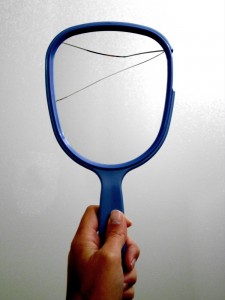 Recent media coverage of the case of a young boy in Ontario is causing some Canadians to question the fairness of Canada’s universal health care system. Two boys in Ontario are suffering from a rare disease. The provincial government is paying for one of these children to receive out-of-country medical care but refuses to pay for the other. Liam Reid’s mother Kristina takes her son’s story to the media. Following national media coverage Ontario Premier Dalton McGuinty and Health Minister Deb Matthews promise to do their best to see that the boy receives the medical care he needs.
Recent media coverage of the case of a young boy in Ontario is causing some Canadians to question the fairness of Canada’s universal health care system. Two boys in Ontario are suffering from a rare disease. The provincial government is paying for one of these children to receive out-of-country medical care but refuses to pay for the other. Liam Reid’s mother Kristina takes her son’s story to the media. Following national media coverage Ontario Premier Dalton McGuinty and Health Minister Deb Matthews promise to do their best to see that the boy receives the medical care he needs.
Supporters of universal health care claim it’s a system based on the values of fairness and equity. I see it as a collectivist system where government controls the production and distribution of health care.
In May 2012 Dr. Margaret Chan, Director-General of the World Health Organization (WHO), delivers her acceptance speech Universal coverage is the ultimate expression of fairness at the World Health Assembly in Geneva, Switzerland. She makes reference to the growing trend of countries all over the world trying to make their health care systems more equitable, “They want to reach every one of their citizens with good quality care, based on need, and not on an ability to pay. They want access that is fair, and they want financing that is fair.”
Her speech raises many red flags. Who are they? Who defines the medical needs for the citizens of a country with universal health care? Who decides on the methods of payment and the amounts to be paid for these needs? Who decides what is fair access and fair financing? What results does such a system produce?
Dr. Chan goes on to say, “It is almost counterintuitive to think that, at a time of rising public expectations for health care, soaring costs, and shrinking budgets, more and more countries are launching plans to reach universal coverage. But this is what is happening.”
I see more red flags. Canada already has a universal health care system. It’s a system whereby government forces me to pay for the medical care of others, yet it prohibits me from paying for my own medical care. It’s a system that forces me to either wait on lists or leave my province and country to access medical care. It’s a system that gives politicians and health care bureaucrats the power to make arbitrary decisions about the quantity and quality of my medical care.
Who says universal health care is the fairest of them all?
Not me.


So government bureaucrats making decisions on your health is a bad thing, but corporate bureaucrats are a good thing? It’s OK that your neighbor gets to pay nothing for his hearing aids but the guy across the street has to pay (or he would have to if he had it) $6000? And its OK that thousands, millions end up malnourished, many dying, due to lack of dental coverage? See, you seem to have that selfish way of looking at the world that seems to suggest that you should just be able to buy whatever you can buy, and not care one bit about those who cannot afford to buy even basic health care. Health care is the business of the nation, to take care of its citizenry. Private insurance can have a role, as an adjunct to those fortunate enough to be able to pay extra. But at the very foundation, there is a human right to care, to access to healthcare, that is the very core of what a government is supposed to do.
Every individual, regardless of their material wealth, should have the freedom to pursue their own health interests. It’s wrong for any third party to manipulate the law for power to infringe on this freedom – be it governments, corporations, special interest groups, or another individual who believes he/she has a right to health care.
People who think that no one should have a right to health care should opt out of society and live off the land so that no one has to share anything with them at all. Selfish individuals can take care of, and pay for, everything themselves. In society, certain things are a shared cost to run it properly. It doesn’t take a genius to understand that group rates cost a lot less than individual ones.
A healthy society encourages individuals to think and act on their own behalf; to better oneself. It also encourages charity whereby we voluntarily help each other out.
Society becomes unhealthy when individuals confuse freedoms and rights, like the freedom of choice with a right to health care. When charity is replaced by government mandates and self-reliance by government dependency. When freedom is unseated by force and bettering oneself is viewed as selfishness.
It isn’t naturally right for the government to control healthcare and be allowed to decide what happens to people just as it isn’t fair for businesses to decide that. We live in a society where we are able to work up through classes. It’s not an easy feat whatsoever, but it can be done. People who work hard should be allowed to choose their healthcare and maybe even have slightly better coverage. Not only would this be an incentive for hard work but it can be done by whoever so wishes to have better healthcare. This isn’t to say that the poor shouldn’t have any coverage, however. Medicaid should be reformed into a system that better insures basic necessities for healthcare if people can’t afford it.
The Universal Heath care System has had its day and soon it will be the survival of the fittest. The ones with money and the right friends will have an open door to the hospitals and the ones who have no money will be denied. service. This is my nightmare…
Universal Healthcare is supposed to cover basic and preventive healthcare for all regardless of means to pay. It should be supplemented by another tier of “For Pay” healthcare for the fortunate few who are able to pay extra for private insurance. They can then opt for going to high priced private doctors and services and not have to wait. I live in the US where the corruption of our Government officials has allowed the private ‘for pay’ Insurance and provider companies to gouge the public so that 6 people are impoverished every week to pay for their healthcare !
Universal basic healthcare is the price of civilization ! Those who resent paying anything if it goes to benefit others do not belong in civilized society. Why not privatize the Fire Brigade ? Hey my house is not burning, why should I pay ? The neighbor if poor, should burn to death, as long as the blaze does not spread to me – UNTIL IT DOES !!!
Don’t like Government – Move to Somalia !
Great analogy. In what has been referred to in the past in the U.S., we like to suggest we are the ‘great society,’ yet refuse to address these inequities until it is out of hand. Then it is claimed that it cost too much. Does anyone know who the first president who tried to introduce the notion of a basic universal health system was in the U.S? Roosevelt! No, not that one – Teddy Roosevelt. Big business shot it down then and every president since … until Obama forged through with his imperfect, but necessary first step in helping the U.S. live up to what we like to think we are.